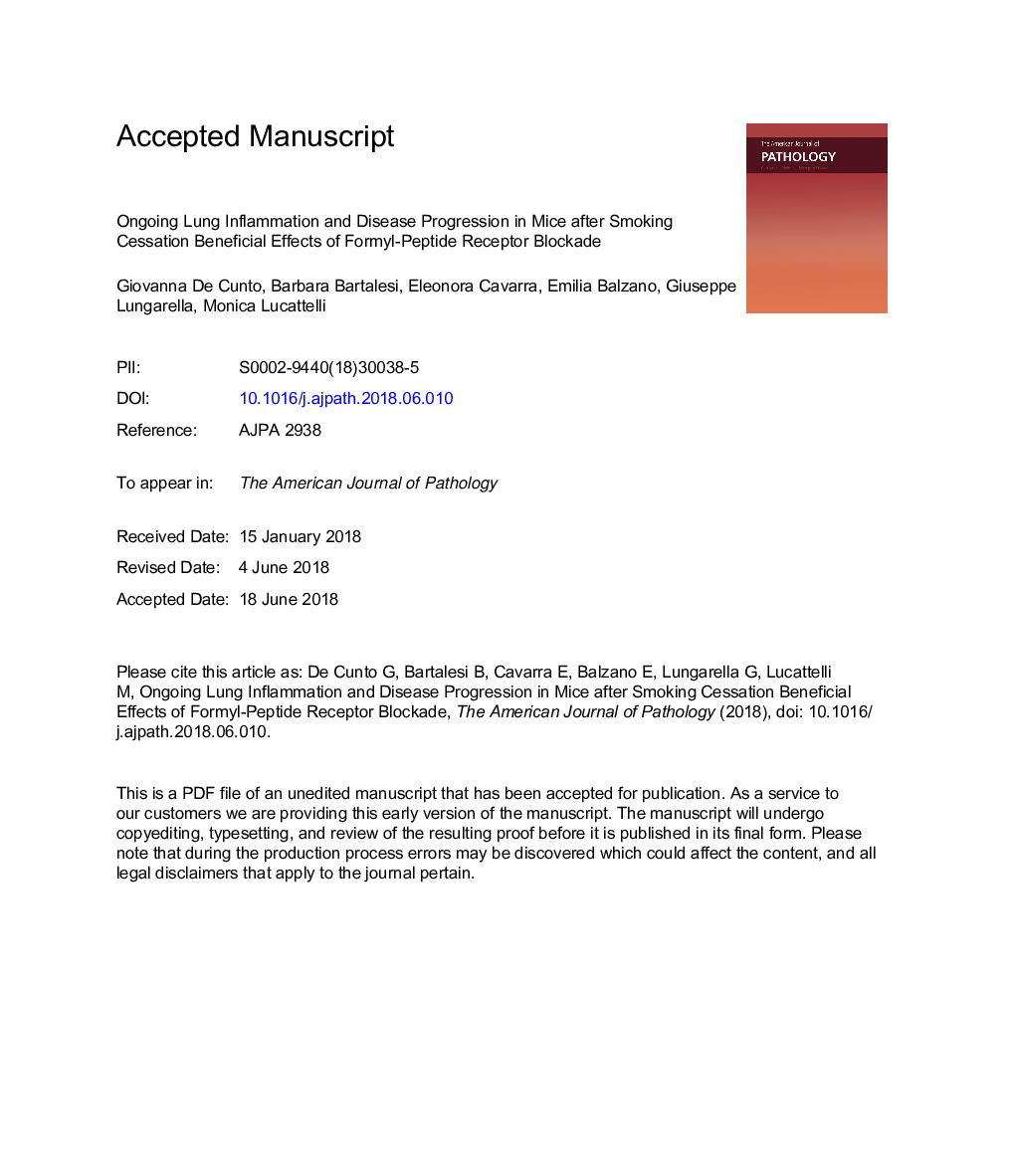| Article ID | Journal | Published Year | Pages | File Type |
|---|---|---|---|---|
| 10212854 | The American Journal of Pathology | 2018 | 29 Pages |
Abstract
The most important risk factor for chronic obstructive pulmonary disease (COPD) is cigarette smoking. Until now, smoking cessation (SC) is the only treatment effective in slowing down the progression of the disease. However, in many cases SC may only relieve the airflow obstruction and inflammatory response. Consequently, a persistent lung inflammation in ex-smokers is associated with progressive deterioration of respiratory functions. This is an increasingly important clinical problem whose mechanistic basis remains poorly understood. Available therapies do not adequately suppress inflammation and are not able to stop the vicious cycle that is at the basis of persistent inflammation. In addition, in mice after SC an ongoing inflammation and progressive lung deterioration is observed. After 4 months of smoke exposure mice show mild emphysematous changes. Lung inflammation is still present after SC, and emphysema progresses during the next 6-month period of observation. Destruction of alveolar walls is associated with airways remodeling (goblet cell metaplasia and peribronchiolar fibrosis). Modulation of formyl-peptide receptor signaling with antagonists mitigates inflammation and prevents deterioration of lung structures. This study suggests an important role for N-formylated peptides in the progression and exacerbation of COPD. Modulating formyl-peptide receptor signal should be explored as a potential new therapy for COPD.
Related Topics
Health Sciences
Medicine and Dentistry
Cardiology and Cardiovascular Medicine
Authors
Giovanna De Cunto, Barbara Bartalesi, Eleonora Cavarra, Emilia Balzano, Giuseppe Lungarella, Monica Lucattelli,
